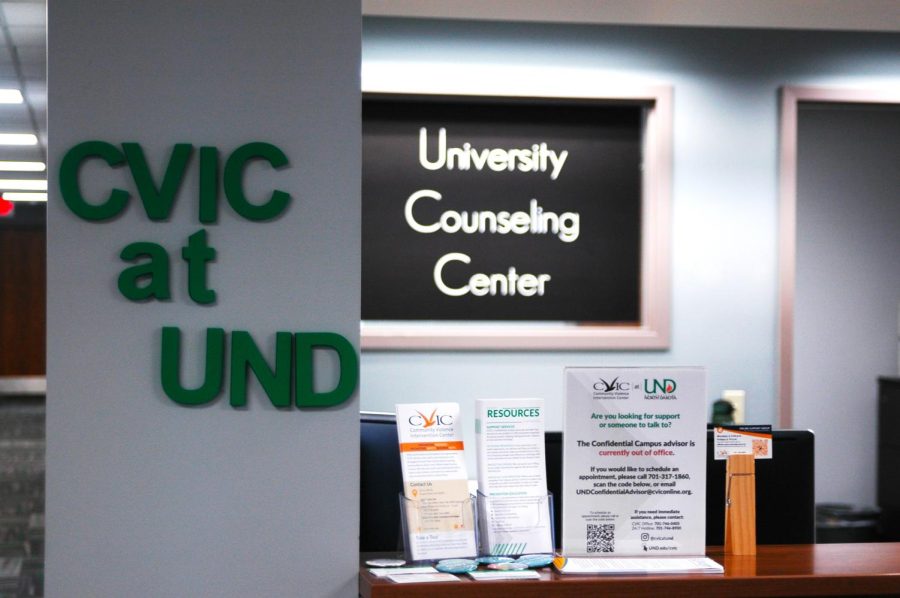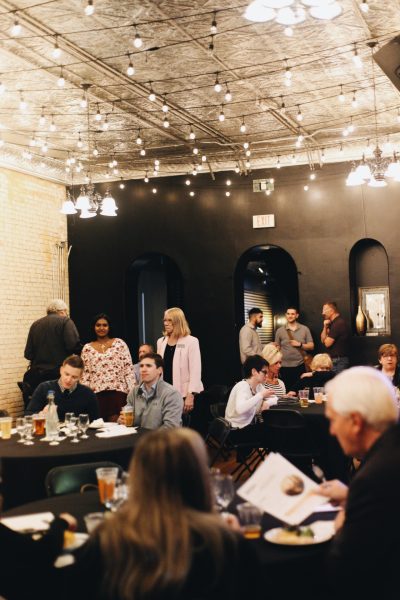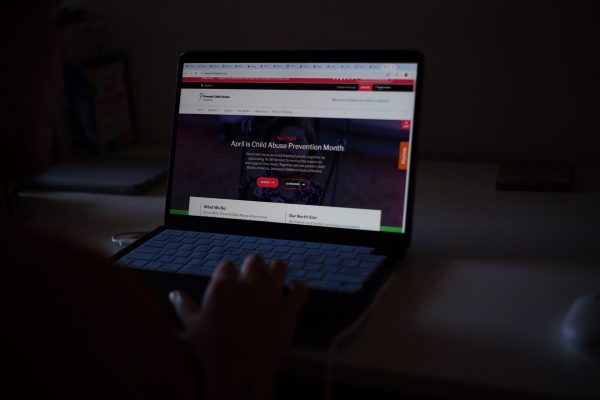Domestic Violence Awareness on Campus
September 22, 2022
Domestic violence can happen to anyone, anywhere. It does not discriminate based on age, gender, race, or sexuality. According to the United Nations, “domestic violence can be defined as any pattern of behavior in any relationship that is used to gain or maintain power and control over an intimate partner.”
Abuse is physical, sexual, emotional, economic, or psychological actions or threats of actions that negatively influences another person. If you are a victim of domestic violence, the University of North Dakota has resources and help readily available to you. You are not alone.
Many people do not realize how prevalent domestic violence is on college campuses. “About 1 in 5 college students say an intimate partner has abused them, and nearly a third admit to having committed assault against their partner sometime in the previous year,” according to the National Coalition Against Domestic Violence. Yet, seldom do we hear about reports. There are many reasons why students may be hesitant or even afraid to report abuse. A victim may fear for their social reputation or be seen as the person who “ruined the life” of the said abuser. Social media now holds a tremendous impact where victims may be harassed, bullied, or threatened online. First-year students are away from their homes and support systems for the first time, and going through the process may seem impossible or daunting to a young student.
The truth is that domestic violence on campus happens more often than anyone would like to admit. Women are at a higher risk, and in fact, “women ages 16 to 24 suffer from domestic violence at the highest rate of any surveyed group,” according to a U.S. Department of Justice report. This does not go to show that men are not victims as well. As previously stated, it can happen to anyone. It is also important to note that instances often occur at night when no witnesses are present and, it is not uncommon that abusers and stalkers even have key cards that can enter buildings to access their victims.
Many of the previously stated facts can sound hopeless or, quite frankly, scary. At the University of North Dakota, many administrators are fighting to keep you safe, give you peace of mind, and be in your corner when needed. They offer hotlines, services, and police reinforcements to help you through a domestic violence situation. Moreover, buildings such as dormitories do have those specific ID badges that allow only residents to enter. At the end of the day, all UND staff are committed to your safety and well-being. There is zero tolerance for abusers on campus. Below are resources available if you find yourself in a dangerous domestic violence situation.
Domestic violence is a horrible act against our peers, and it takes a community to protect and prevent such happenings. If you see something, say something. Take action if you witness a conversation that may seem volatile. If you do not feel comfortable confronting the situation, call the police. You will not be scrutinized for looking out for your fellow student body. Each student needs to be aware of domestic violence and its impact on not only victims but the university as a whole.
CVIC at UND
Confidential support for students and employees
[email protected] or 701-777-6550
University Counseling Center
Confidential counseling and therapy for students
701-777-2127
National Domestic Violence Hotline: 1-800–799-7233
University Police Department
701-777-3491 for non-emergencies
Taylor Hess is a Dakota Student Reporter. She can be reached at [email protected].












